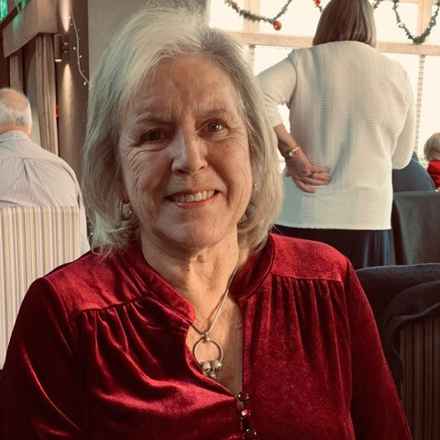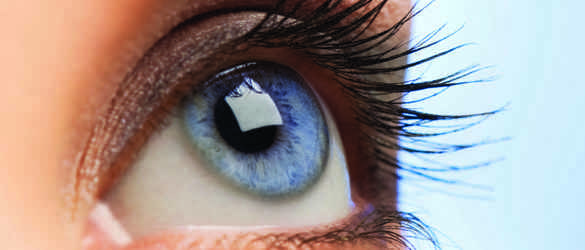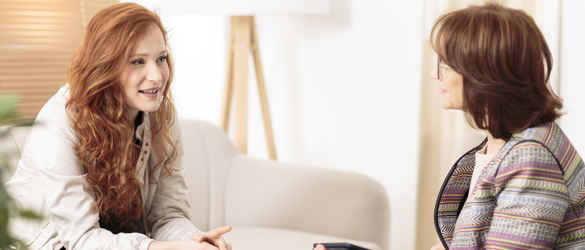'Do the things that make you feel worthwhile'
Posted: Wednesday 24 January 2024
The loneliness and isolation associated with sight loss can be detrimental to our mental health, but volunteer Carol is on a mission to emotionally lift and encourage others.
Carol, who was diagnosed with Stargardt disease as a teenager, is now a Macular Society befriender and advocate for sight loss support groups, as she attends her own local, monthly group in Guernsey.
“It's important to encourage others to do things that make you feel a bit more worthwhile because I think you lose your sense of worth when you get to a certain age and that you can't do anything anymore. I’m keen to show that actually that's wrong and that you can do a lot of things still,” she explained.
Carol is now 73 and so has had years of experience living with her sight loss. However, Carol remembered her school struggles as nobody believed her sight difficulties.
She recalled: “I was about 13, so I was at school and struggling to see the board at the front of the classroom. I was struggling to read out loud when I was asked to do so, obviously, because I couldn't see properly.
“I saw several opticians, and each of them said that they couldn't find anything wrong with my eyes but that corrective lenses weren't going to help. But one of the opticians actually prescribed some glasses, and they did absolutely nothing. It sort of satisfied the teachers that were saying to me, get some glasses.
“It was very frustrating and it still frustrates me today because I have to explain myself because to look at me, you wouldn't know there was anything wrong. It's the hidden disability.”
She was still without a diagnosis until the age of 19, when she realised life as an adult wouldn’t be as independent as she would have hoped.
Carol said: “I think my biggest shock was when I said to the consultant at Moorfields Eye Hospital, just after I'd been diagnosed, I said, ‘Will I be able to carry on learning to drive?’ and he said, ‘Doing what? No, you can't drive.
“Up until then I'd never been told that I couldn't. I enjoyed learning to drive and it was a big blow to give up. And even today, it's still a big blow because I can't be independent completely. My husband used to drive me everywhere. He was as good as gold, but he died in early 2019, so now I'm back to square one again and having to either get taxis or voluntary car service or friends and family to give me lifts, anybody that can help.”
In her varied career, Carol always looked for job opportunities which would work around her deteriorating sight loss. From working with children, to office work and helping set up a domestic violence program in Guernsey, she admitted it might not always have been easy but “I've never given up. I've always looked for ways around what I do and how I do it.”
It’s that outlook which played a role in enabling Carol move into volunteering and continuing to support others. Now she is a telephone befriender, speaking to one lady living with age-related macular degeneration (AMD).
“She looks forward to my calls because she's on her own, so she finds it helpful to speak to someone who understands what she’s talking about,” Carol explained.
“I started doing it two or three years, it's about the same time as I started with the Macular Society support group, and equally it’s beneficial to me because it means I've got contact in the outside world as well.
“I enjoy being able to help her to find things. In fact, I've tried to encourage her to join a local group, although she isn’t so independent and she can't get there. But I think she'd get something from it, from being with other people as I've done.
“It's just a good thing to do, isn’t it? If you want to do something to help people and you know that you can contribute something, then it's very rewarding.”
Carol was introduced to her local group leader a few years ago, and despite some hesitation about joining as she felt she did not need more information about her condition, realised it was the social element which she was missing.
She said: “I found going to the group meetings really interesting because I met other people, not necessarily with my condition, but who have been through similar experiences as I have, and we have different speakers who contribute quite a lot to the group, which is not necessarily about macular degeneration or macular problems. It just widens your horizons a bit.
“So it's the social aspect rather than just being with other who have macular problems. Now I live on my own so I find that I've got to go and find my own social contacts, which for me, the Macular Society has done that.
“And of course, also when you've been going for a while, you can help new people coming in to make them feel welcome.”
If you are struggling to come to terms with a diagnosis of macular disease, the Macular Society is here to support you.
Our friendly Helpline team can answer your questions, or put you in touch with our range of free services, including counselling. Contact the team today on 0300 3030 111 or help@macularsociety.org
Stargardt disease
Stargardt disease is a genetic condition caused by a tiny alteration in a single gene. It is the most common form of juvenile macular dystrophy.
Support for you
We provide free information and support to those with macular disease, along with their family and friends, to help people keep their independence.
Get the latest news and advice from the Macular Society
To hear about life-changing research, treatments and tips for living with sight loss, subscribe to our monthly enewsletter today. Together we can Beat Macular Disease.
Sign up to our free email newsletter



